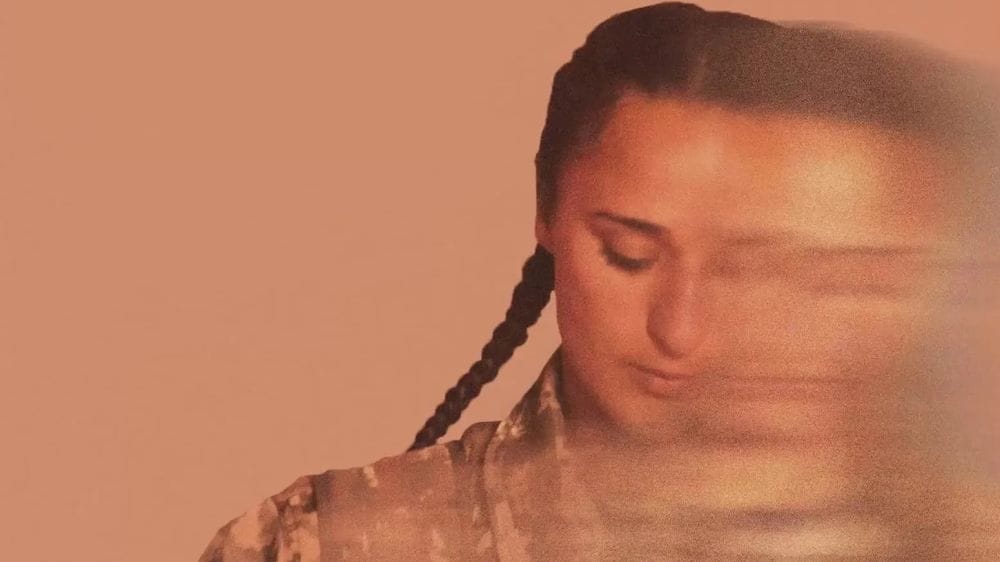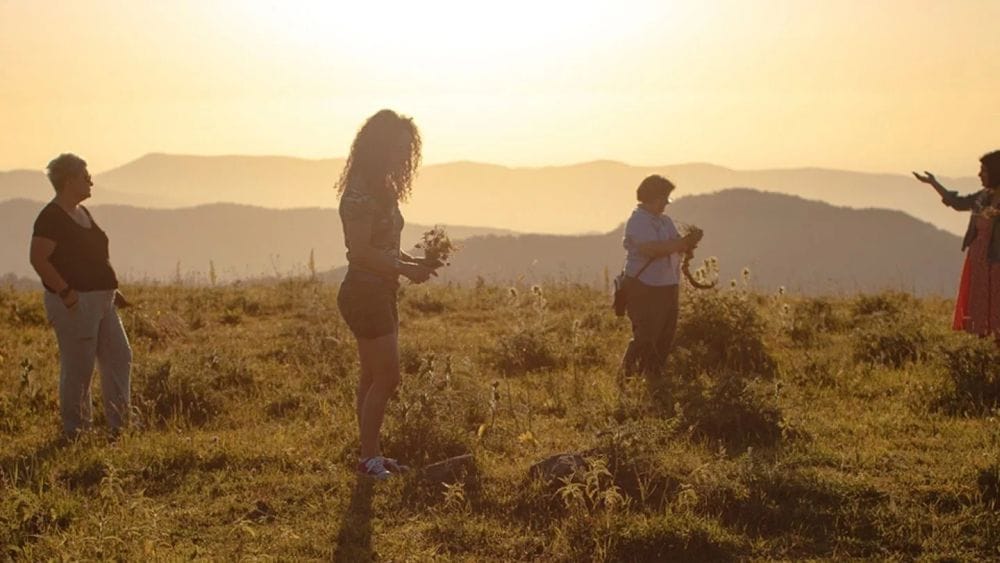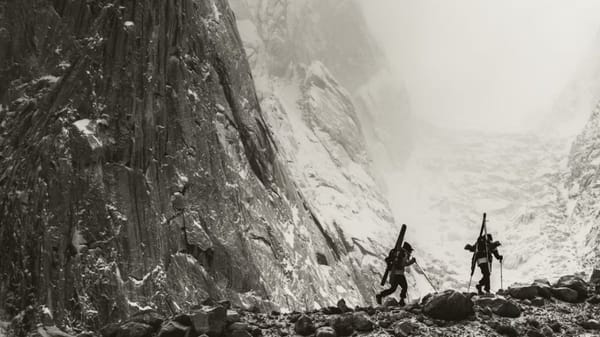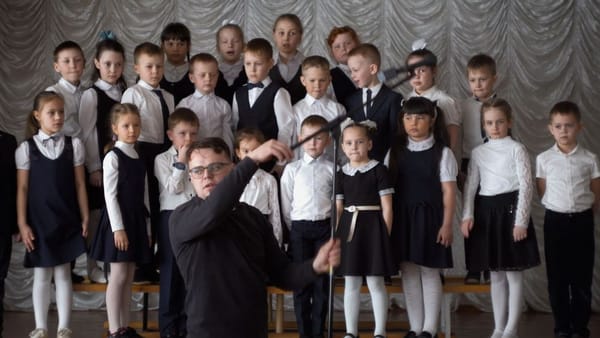There Was, There Was Not (dir. Emily Mkrtichian)

“There was, there was not” is an Armenian idiom that plays as the opening to a fairy tale in much the same way that “once upon a time” might elsewhere. It’s a poetic and appropriate way to begin a story of Artsakh, an eastern-European enclave that now, as we are told over the end credits, no longer exists, following a military offensive of ethnic cleansing by the nation of Azerbaijan. There was. And now, there is not.
Director Emily Mkrtichian’s feature debut is There Was, There Was Not and observes the lives of four women in the Artsakh region. The sadness of the film and the deep sense of loss that is felt by Mkrtichian’s subjects is smartly told through her observational storytelling and Alexandria Bombach’s editing, criss-crossing between the four women and the land itself; sometimes beautiful shades of purple and blue and golden yellow, and others a smoky warzone. This is a film of mirrors, as each of the women at its centre start and end in places that highlight the stark reality of what this war, lesser known as it is, has brought upon those who live there. Unlike Ukraine or Gaza, the Azerbaijani blockade of food and medicine to the region and subsequent seizing of control of the Arksakh region entirely has received comparatively little international airtime. I sadly had never even heard of it; too modest of a conflict to compete for attention and eyeballs despite its connection to a long history of genocide and violence for their Armenian ancestors.

Sose Balasanyan is a local judo instructor with the medals and championships to put her among the best with a goal of attending the Olympic Games. Early in the film we see her teach rooms of boys and girls the art of the attacking sport, discipline and self-defence, but by film’s end she has shifted to the front lines when not teaching rooms of students now how to work firearms instead. Sveta Harutunyan begins the film in the beautiful nature of her homeland with her young children. She works to disarm landmines from conflicts past, eventually becoming a refugee after her own life has been shattered by bombs. Siranush Sargsyan runs for local office on a platform of government accountability, who pivots to documenting the Azerbaijan military’s war crimes. Accountability once more. Gayane Hambardzumyan runs a local women’s centre and later takes on a mission of recording oral histories for prosperity. She comforts the speakers, crying alongside them as they speak of the pain they have experienced.
Like many of the films that we have seen emerge out of warzones in recent years, women are at the forefront of There Was, There Was Not. There is something like 120,000 Artsakhis who are now displaced from their homeland, and Mkrtichian’s choice to focus on these four women in particular proves smart and emotionally affecting. They are an eminently watchable cross-section of what was Artsakhi life might have been like. This is a modest film with Mkrtichian stepping to the back as tragic events unfold. But the filmmaker is able to get to the heart of her subjects as they fight to save and preserve the life that they have and unfortunately preparing for the life they will too soon come to have. Mkrtichian and her cast do a wonderful job of opening up the audience to not just the conflict, but the wonder of the region and its people too in a quiet, but touching manner.
If you would like to support documentary and non-fiction film criticism, please consider donating by clicking the above link. Any help allows me to continue to do this, supports independent writing that is free of Artificial Intelligence, and is done purely for the love of it.



